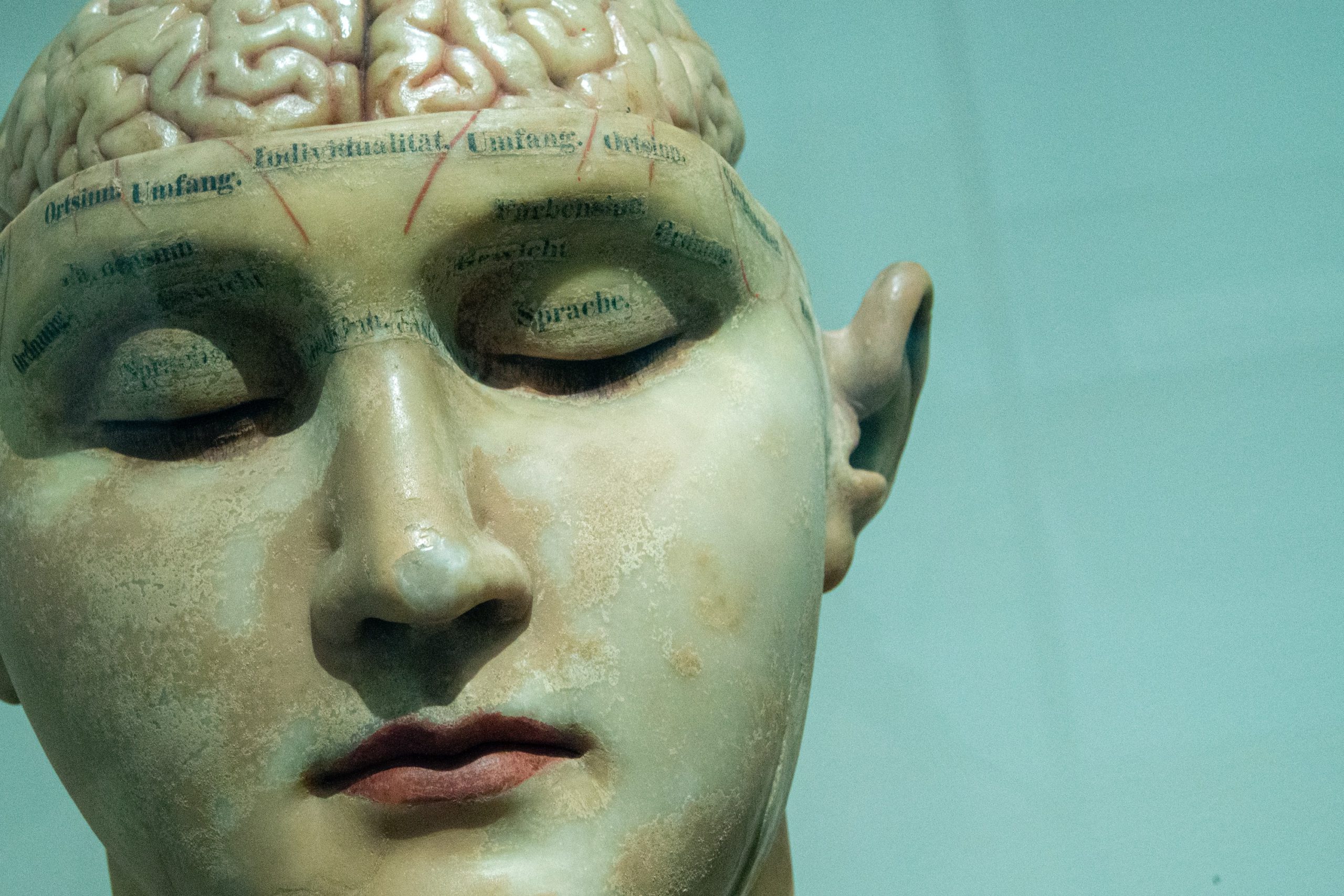
I sat down with Dr. Bob Larson, a world-renowned deliverance minister with more than 50,000 recorded exorcisms, weeks ago and asked him to answer very frequently asked, but difficult to answer questions: How can we truly differentiate between a demon and a disorder? Is every disorder caused by a demon? When can we know if there is a need for deliverance or a need for medical intervention?
During this conversation, I learned the following differences between both demons and disorders.
According to Dr. Larson,
“Any psychological condition can be demonically created/energized or capitalized upon a pre-existing physiological condition.”

How to Practically Differentiate
Ask the Right Questions
The fine line between demons and disorders can often be found by asking the right questions to the person who is desiring prayer. The minister must try to find out the root cause of the symptoms. They can do so by asking simple questions regarding the person’s health.
It’s important to find out whether they have had that condition because of something that appears to be endemic, neurological, or metabolical. Perhaps the shifts in behavior and body could be a cause of hormone imbalance, or the thyroid, or pineal gland. All of these affect a person’s homeostatic condition.
You don’t have to be a medical doctor or have a deep understanding of psychology in order to dive into this. Simply ask questions like the following (oftentimes, depending on the condition of the person, someone that has come with them may have to answer the questions):
- How long has this person been this way?
- What was the trigger point of this behavior/shift?
- Have they always been like this?
- Was there a certain time, traumatic incident, or life event that caused a shift in their mental outlook?
- Has the condition been medically certified? Or is this self-diagnosed?
- Have they seen a psychiatrist?
- Have they seen a psychologist?
When Someone Hears Voices
When someone says they are hearing voices ask the following:
- What does the voice say?
- Who does it claim to be?
- What is it trying to do?
- Does it have a name?
As a simple rule to follow, though not accurate 100% of the time, this question has always helped me: “Is this voice in the mind, this mental instability, trying to destroy the person or somebody else?”
Often, if it’s trying to destroy them or someone else, we are more inclined to think that it could be a demon.
What we are looking for when asking these questions, is to see to what extent this is medically treatable. Fortunately, there are some medications that do help with psychosis and other forms of mental conditions.
Take Time to Study
Another recommendation is to take time to study the person you are meeting with. Watch their behavior and their reactions as they sit there and listen/talk to you. And get studied on different disorders like borderline, psychosis, or delusion. When you know the differences between these, it makes it easier to notice the different modalities of expressions that indicate what disorder you may be dealing with.
Why is this important?
Because oftentimes, when there is a demon hiding behind a condition, the minister cannot get to the demon until the person becomes mentally stable.
When dealing with mental disorders, or trying to see if the cause is spiritual, you must start by asking many questions.
In cases this sensitive, never start by laying hands on the person and trying to cast a demon out from the very beginning. This can be very dangerous when you have no foreknowledge of the severity of their condition.
“Why Didn’t Jesus Follow This Recommended Route When Doing Deliverance?”
Upon hearing the patience needed and the methodical process required to deal with extremely sensitive cases, many people doubt whether this method is purely a western approach and far from what the Bible actually teaches us to do. Often they’ll say things like, “Well Jesus didn’t do that when faced with severe conditions. He just cast out the demons.”
The response to this question is simple. During that timeframe, there was no terminology developed to describe mental conditions of the sort. So verbally, there was no way for Jesus to explain to people what the condition was. In comparison to today, we use terms like conscious, subconscious, and psychosis–terms that are only a few hundred years old.
Secondly, on occasions when the Bible says that Jesus cast out a demon, it also says “He healed them.” Deliverance brings about healing, and Dr. Larson believes that when the Bible makes mention of that, Jesus was also healing mental conditions. Another thing to remember is that when we are reading the Bible, we are reading anecdotal accounts where we have a limited description of phenomena that might have gone on. We see in other parts of Scripture where Jesus takes a few steps to heal/deliver someone fully, so when we are reading these passages and stories, we must remember that there are many times more than meets the eye.
Another reason why the methodical approach to these cases is so necessary is because demons have evolved their tactics. During Jesus’ time on earth, demons didn’t have meth to hook people on. Now they have new drugs, new curses, and different and more devastating ways to destroy peoples’ minds. These new methods have now multiplied the mental problems people are facing. As deliverance ministers, we must adjust to the times, and bring the deliverance and healing of Christ to these people as the Holy Spirit in these new times teaches us how.
Common Mental Disorders that Ministers Mistake for Demons
Schizophrenia
Schizophrenia is defined as a long-term mental disorder of a type involving a breakdown in the relation between thought, emotion, and behavior, leading to faulty perception, inappropriate actions and feelings, withdrawal from reality and personal relationships into fantasy and delusion, and a sense of mental fragmentation.
This is the condition that most closely aligns itself with demonization, making it the disorder that is most easily confused by ministers. Schizophrenia is a condition in which people lose touch with reality and develop psychosis, which in essence means their mind is not properly perceiving reality.
When someone asking for prayer claims to have hallucinations or is hearing and seeing things around them, one of the first things that need to be done is to watch the body language.
Look for things like the absence or presence of eye contact. If you sit with a person for 30 minutes and they are unable to look you in the eyes during that time, then it can be a demon that is not allowing them, or the person is incapable of looking at another person in the eyes because they are living in their own world.
Look for signs that indicate restlessness. Demons can make a person restless, but it’s often an aggressive form of restlessness.
Dealing with cases that are this delicate can be an exercise of our patience at times, but there can be huge changes in people’s lives once you get past the symptoms of the mental illness, and begin to deal with the demon.
People with mental illnesses, like schizophrenia, autism, or manic-depression, often get told it’s a demon by well-intended Christians; and although the cause might be spiritual, if that person doesn’t first go through the processes of healing then they can end up damaged and drive the demon deeper into hiding.
Dissociative Identity Disorder
A rare psychological disorder in which two or more personalities with distinct memories and behavior patterns apparently exist in one individual.
Dissociative Identity Disorder (DID) is in essence multiple personalities. It’s not Schizophrenia, it’s not a split-personality, and it’s not Jekyll and Hyde (one having a two-sided personality one side of which is good and the other evil), which are all common misconceptions for this disorder.
When a person is diagnosed with DID, they are not split into two different people. They simply have another part of their mind that forms another identity. Almost always, this is connected to a trauma that occurred.
For instance, let’s say someone is a Christian and they have a problem they are trying to get under control. They try all the disciplines, they fast and pray, they go through inner healing, etc., and still, there is still a part of them doing something aberrational, and oppositional to their faith.
Where is that coming from? Sometimes it’s not coming from a demon.
When someone has gone through a traumatic experience, like abuse, and they live in a private terror from what has happened, often creating this new personality is the only way the person can survive without having a complete mental collapse.
People who can’t dissociate, develop psychosis (a severe mental disorder in which thought and emotions are so impaired that contact is lost with external reality), mental illness, and states of unreality, or they will use sex, drugs, or alcohol to try and numb themselves. But for some people who don’t run to those things, particularly Christians, they split off a part of themselves that is the person who experienced the trauma.
When dealing with this sort of case, all the shame, the trauma, and the emotions are stored in the altered personality, which is often given a name. If you have people in the room when ministering a case like this, ask family or friends if they ever act in a regressive way, like a little child. Often in cases like this, when the person feels safe, the childlike behavior will come out.
Even though this may seem like a scary territory to dive into as someone who may not be as studied in the subject of the mind, one thing that you can do is ask the Holy Spirit to guide you to ask questions like,
“Is there anyone inside of ______ (person’s name), who has a secret? Or something you’d like to tell me?”
These questions should be asked in a gentle manner. Often the person who has an altered state of mind does not have the memory. However, many times, as the person is receiving inner healing the memory begins to return in a healthy way.
It’s encouraged for the person dealing with DID to not only go through inner healing but also deliverance, as oftentimes there is also a demon attached to that altered state stuck in the anger, shame, and trauma.

Prescription Medicine
After people have gone through deliverance, it is very dangerous for a minister to encourage someone to get off their medication immediately, especially if the person diagnosed has been on that prescription for a while. Medications prescribed for mental illness have to be slowly weaned off of, as they can have serious side effects. Encouraging someone to get off of medications without the advice of their doctor can be damaging to that individual, and could potentially send them into a psychotic state that is difficult to recover from. This is especially true if they are not fully healed and still need more help.
If you are genuinely healed in your body or mind, eventually, the proof of that is in the ability to function.
Now, when you believe that you have been healed, it’s encouraged to go to your doctor or clinician and tell them that you believe the Lord did a healing work in you. Let the doctors know that you would like to work with them in gradually getting off your medication and would like to be monitored through that process. Doing this the right way will bring glory to God.
Parents With Kids Who Have A Mental Illness
As a parent going through this process of healing and deliverance with your child, one thing that is encouraged is to first get a doctor’s opinion on the mental health of your child. This does not mean you have to agree with them, but listen to what they have to say observationally about the symptoms your child may be exhibiting. The cause is another matter. The cause may or may not be spiritual in nature, but by getting their medical opinion you are able to see what the symptoms say about your child’s health.
Remember that by doing this, you’re not devoid of praying it away, fasting it away, or seeking God’s intervention on your behalf. You are simply coming to an understanding of what you are dealing with. And sometimes, there is a demon that gets revealed. But to do so in cases like this, you must strip the layers under which the demon is hiding. These are layers of behavior that allow the demon to hide, but when the behavior is dealt with, the demon is forced out into the open.
Deliverance
As Christians, we must be careful when dealing with deliverance. We know that demons can cause disease and pain, as well as different types of attacks against a person. However, as people who minister deliverance, it’s important to not go straight into the laying on of hands and trying to cast out demons of those we suspect could be dealing with more delicate issues. One of the most important things that Dr. Larson teaches both young and old ministers, is to take the time to ask questions because that’s half of the work.
The Bible even mentions the story of the boy who had seizures. Instead of driving the demon out right away, Jesus first asks the father a question.
So the followers brought him to Jesus. As soon as the evil spirit saw Jesus, it made the boy lose control of himself, and he fell down and rolled on the ground, foaming at the mouth. Jesus asked the boy’s father, “How long has this been happening?” The father answered, “Since he was very young.”
Mark 9:20-21
Another important thing Dr. Larson encourages people to do is to get studied in the area of mental health, especially if you are passionate and desiring to grow in deliverance. Many people, although they mean well, because of their lack of knowledge in this area can diagnose something as a demon, or approach it wrong which leads them to be ineffective.
Begin to google different conditions and read books on the different mental illnesses and how they affect the mind and body. Glean information from websites and videos that can demonstrate what happens in the mind. Be curious about the medical side of healing. When we, as believers, combine it with the marvelous work of the Holy Spirit, we can be instrumental in someone’s transformation.
Sign up for Dr. Bob Larson’s International School of Exorcism
Schedule a private deliverance session with Dr. Larson at his website www.boblarson.org